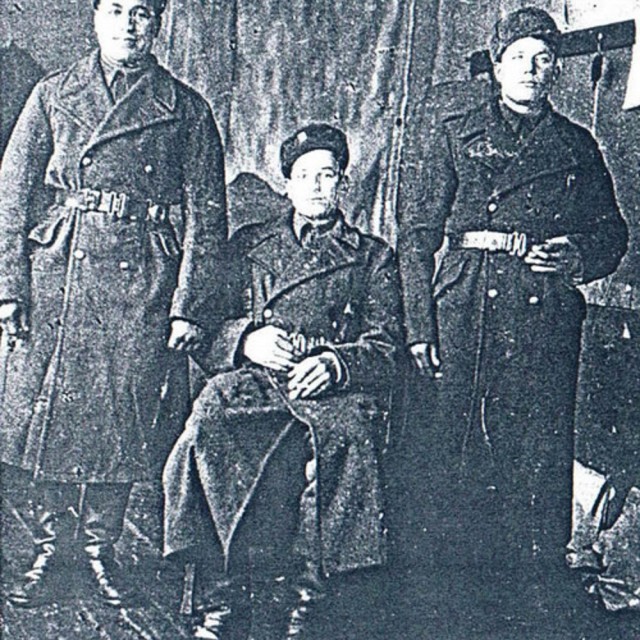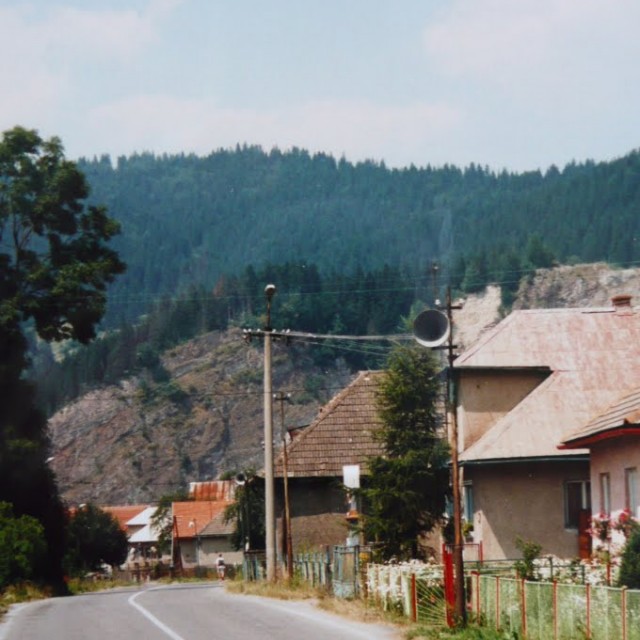In the enemy's rear
In 1944, Nikolai Kubarič landed in eastern Slovakia as a member of the Borkaňuk group, which was supposed to assist the local guerrilla resistance. Nikolai Kubarič will never forget his encounter with German soldiers when he was spending a night at a blacksmith in the then German village of Poruba: "Suddenly, in the middle of the night, the landlord wakes me up and says: ‘Nikolai, wake up, the Germans are here!’" Kubarič was probably revealed by someone from the village: "When he said this, I started parting with my life. I climbed up to the attic. From my experience I had from previous fights, I knew that they wouldn’t come to the attic for me since they knew that I was armed. Instead, they would burn the house down and wait for me to run out of the fire and then shoot me." Fortunately, Nikolai Kubarič managed to break out through the roof and then, in an unguarded moment, to jump down inside the house and run away: "At that moment, I saw nobody around, so I took a risk and started running away from the place. As I was running, I heard somebody shout: 'Halt! Halt! Halt!' Bullets were flying around my ears – my Guardian Angel indeed stood by me in that moment." Nikolai Kubarič hid under the bridge over the local creek and thus he managed to outwit seven Nazi soldiers and return to his group in the mountains. The village of, (formerly), German Poruba wasn’t so lucky however. For its cooperation with the local guerrillas, it was burned down and razed to the ground.
Hodnocení
Abyste mohli hodnotit musíte se přihlásit!
Trasy
Příběh není součastí žádné trasy.
Komentáře

The Borkaňuk guerrilla group
The core of the group was formed in Svjatošin near Kiev and consisted of the special task force of the 1st and 2nd Czechoslovak independent brigade. Of the nineteen members of the Borkaňuk group, fourteen were Czechoslovak soldiers. After the airborne landing, the group carried out all forms of guerrilla warfare, attacking enemy troops, conducting continuous reconnaissance activities and encouraging the armed resistance of the local population. The Borkaňuk group was accepted by the Slovak guerrilla group Požarskij and established cooperation with the Čapajev partisan brigade, the military group of Colonel Talský and the Kriváň military group. The Borkaňuk group set up its base in the vihorlatské forests, where over the course of the next two months, they carried out reconnaissance, sabotage and combat operations in the surrounding area. From the original nineteen members, the group grew to 250 men. It conducted 40 combat operations, during which 183 enemy soldiers and officers were killed and 46 were captured. The group managed to get hold of 30 horses and 96 guns, to destroy two bridges and 17 cars, and to dispatch 38 situation reports. The Group also supported the inhabitants of the local villages in their defense against the occupation and looting by German forces. However, in the long run, the villagers had no chance to succeed against the numerical and technical superiority of the Germans and they were eventually largely destroyed and burned down. After several failed attempts to penetrate further to the west, in December 1944 the Borkaňuk group acted on its orders and joined the Red Army troops in the area of Perečín. The group’s prisoners of war were handed over to the Soviets and the group as such was discontinued.



